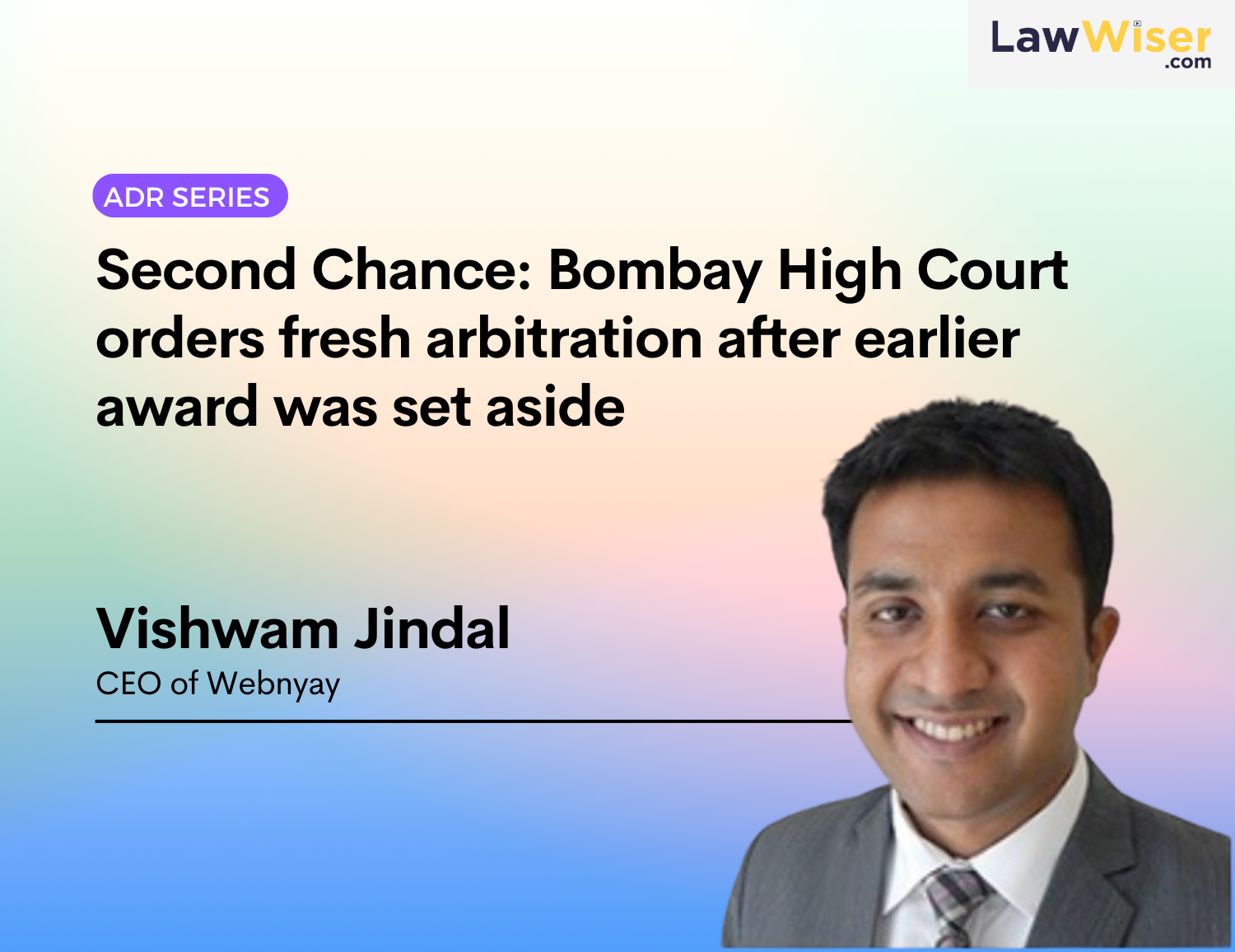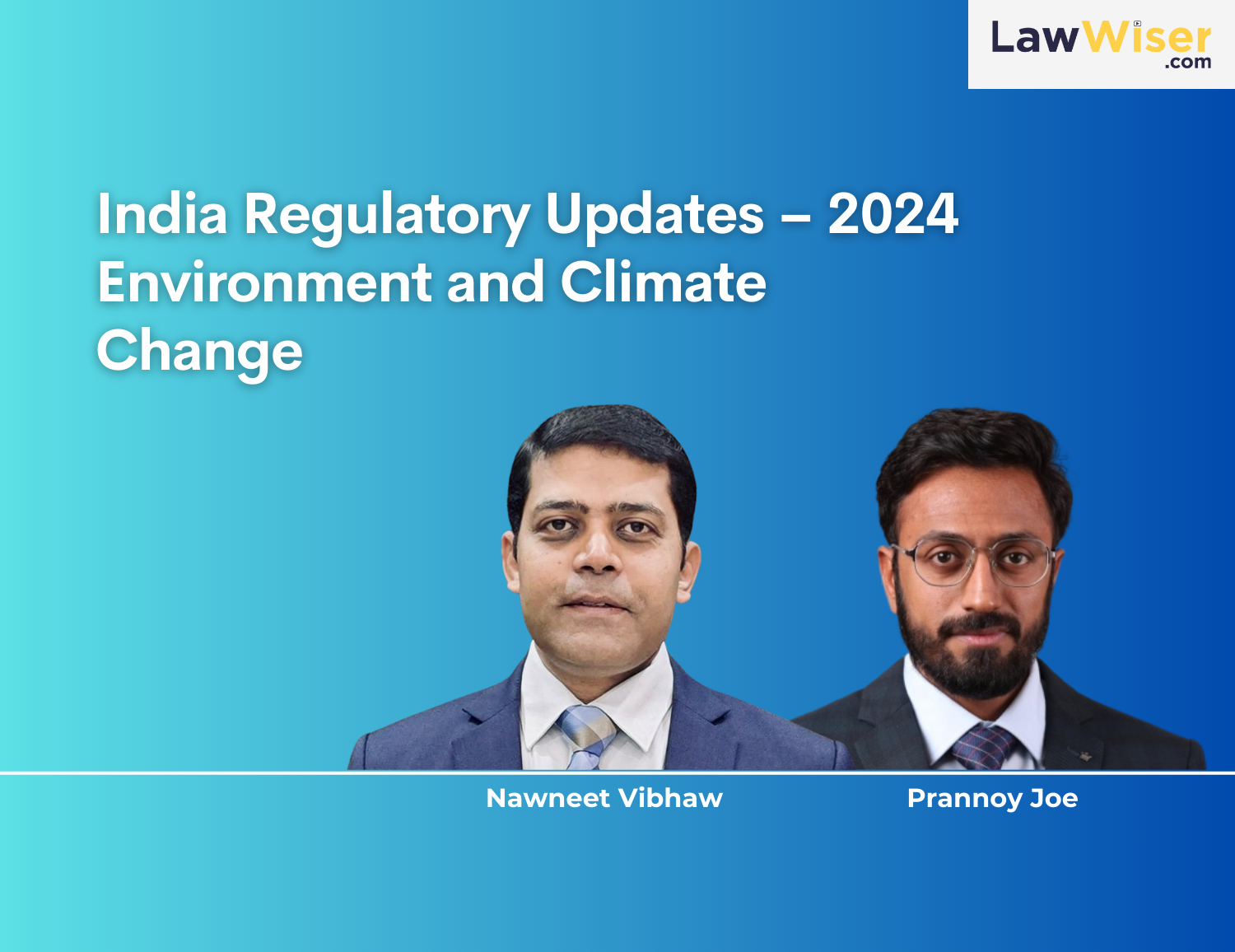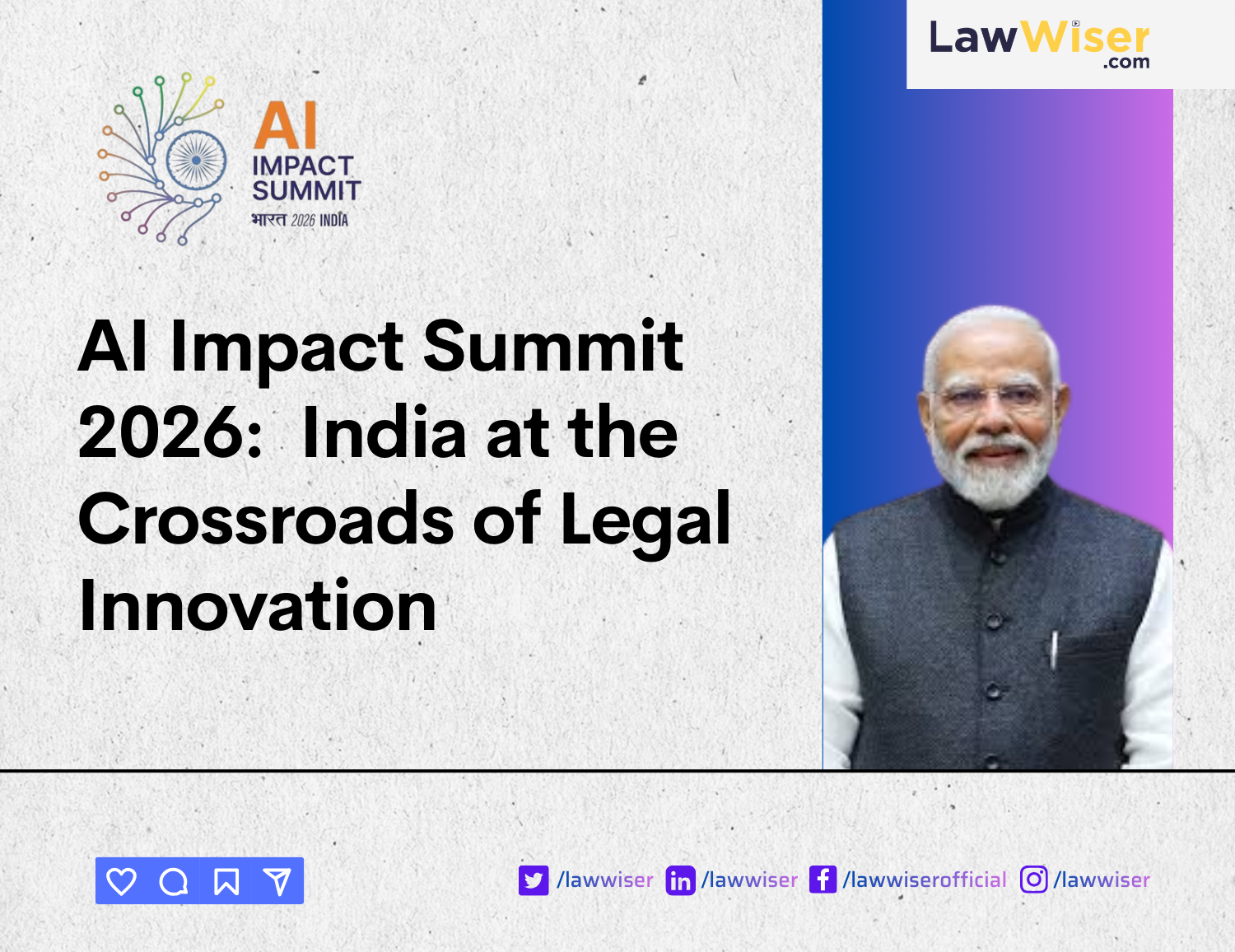Case Note: Batliboi Environmental Engineering Ltd. v. Hindustan Petroleum Corporation Limited (Bombay High Court, 2025)
Justice Somasekhar Sundaresan of the Bombay High Court allowed a Section 11 application for appointment of a fresh arbitrator after an earlier arbitral award between the parties was set aside. The Court held that, in this instance, when the arbitral award has been set aside, parties were restored to their pre-award position, allowing them to commence arbitration proceedings afresh. The Court rejected the argument that observations made by the Supreme Court while upholding the setting aside of the earlier award constituted a ruling on merits that would prevent fresh arbitration.
Facts
Batliboi Environmental Engineering Ltd. (“Batliboi“) was awarded a contract by Hindustan Petroleum Corporation Ltd. (“HPCL“) for construction of a sewage treatment reclamation plant at HPCL’s refinery on a turnkey basis, pursuant to a purchase order. Disputes arose between the parties, leading Batliboi to make claims under numerous heads.
The matter went through four rounds of litigation:
- An arbitral award dated March 23, 1999 (“Arbitral Award“) was passed in favor of Batliboi.
- The award was upheld by a Single Judge of the Bombay High Court under Section 34 of the Arbitration Act (“Section 34 Judgment“).
- On appeal, a Division Bench of the Bombay High Court set aside the award under Section 37 (“Section 37 Judgment“)
- The Supreme Court, in its judgment dated September 21, 2023 (“SC Judgment“), dismissed Batliboi’s appeal and upheld the setting aside of the award.
Subsequently, Batliboi invoked arbitration afresh on October 12, 2023. HPCL refused to participate, claiming that Batliboi’s claims had been adjudicated on merits and could not be re-adjudicated. This led to Batliboi filing an application under Section 11 of the Arbitration Act for appointment of an arbitrator.
Issues of Law
The primary issue before the Court was whether observations made by the Supreme Court while upholding the setting aside of an arbitral award constitute a ruling on the merits of the case, thereby preventing fresh arbitration proceedings on the same disputes.
This required examination of:
- The scope and nature of judicial review under Sections 34 and 37 of the Arbitration Act;
- The application of the doctrine of merger when the Supreme Court upholds a judgment setting aside an arbitral award; and
- Whether the parties are restored to their pre-award position when an arbitral award is set aside.
Submissions of Parties and Precedents Cited
Batliboi’s Submissions (Represented by Mr. Virag Tulzapurkar, Senior Advocate)
- The SC Judgment merely held that the Arbitral Award did not withstand scrutiny under Section 37 read with Section 34, without adjudicating the merits;
- The Section 37 Judgment had merged into the SC Judgment under the doctrine of merger, and therefore ceased to exist independently;
- The SC Judgment explicitly held that the Arbitral Award was devoid of reasons, which meant that the claims had not been adjudicated on merits; and
- Cited Kunhayammed & Ors. v. State of Kerala & Ors. (2000) to support the doctrine of merger, arguing that once special leave to appeal is granted, the order appealed against “sinks or disappears” into the order passed in appeal.
HPCL’s Submissions (Represented by Mr. Zal Andhyarujina, Senior Advocate)
- The SC Judgment contained extensive observations on merits and endorsed the Section 37 Judgment, which amounted to concurrent findings on merits;
- The doctrine of merger meant that the reasons and findings in the Section 37 Judgment became part of the SC Judgment;
- Cited Jaiprakash Associates Limited v. NHPC Limited (2025) where the Delhi High Court refused to refer parties to arbitration in a post-award reference on grounds of public policy;
- Also relied on Tantia Construction Limited v. Union of India (2021) where the Calcutta High Court rejected a Section 11 application for claims already adjudicated by an arbitral tribunal; and
- Argued that allowing fresh arbitration would amount to giving Batliboi a “second bite at the cherry”.
Other Precedents Cited
- McDermott International Inc. v. Burn Standard Co. Ltd. & Ors. (2006), which established that when an arbitral award is set aside, parties are free to begin arbitration again; and
- Omprakash Verma & Ors. v. State of Andhra Pradesh (2010) and Gangadhar Palo v. Revenue Divisional Officer (2011), which expanded on the doctrine of merger.
Decision by the Court
Justice Sundaresan allowed the Section 11 application and appointed Justice S.C. Gupte, a former judge of the Bombay High Court, as the Sole Arbitrator.
On the Nature of Judicial Review of Arbitral Awards, the Court emphasized that the jurisdiction created for judicial review under Sections 34 and 37 is inherently limited. Courts cannot modify arbitral awards or substitute their judgment for that of the arbitral tribunal. The outcome of such review is binary – either upholding or setting aside the award.
Regarding the SC Judgment’s Findings, Justice Sundaresan noted that the Supreme Court had explicitly stated it was “not commenting or examining the merits of the computation” in the Arbitral Award. The Supreme Court found the Arbitral Award to be “bereft of analysis and examination of facts and contentions” focusing on the procedural deficiencies rather than adjudicating the merits of the dispute.
On the Doctrine of Merger, the Court acknowledged that the Section 37 Judgment merged into the SC Judgment. However, it clarified that this merger must be understood in the context of the limited jurisdiction being exercised. The SC Judgment was clear that it was endorsing the finding that the Arbitral Award was unsustainable in the exercise of jurisdiction under Section 37 read with Section 34.
Concerning the Consequences of Setting Aside an Award, the Court held that when an arbitral award is set aside, parties are restored to their pre-award position. This is described as an “essential feature of the legislative design and structure of the Act.” The Court cited McDermott which established that when an award is quashed, parties are “free to begin the arbitration again if it is desired.”
In distinguishing precedents Cited by HPCL, the Court noted that Jaiprakash Associates involved an arbitral tribunal that had clearly ruled on merits that there was no evidence to support the claim, yet awarded damages. Similarly, Tantia Construction involved a situation where the same claims had already been adjudicated in a valid arbitral award. The Court found that neither precedent was applicable to the present case.
A copy of the decision can be downloaded here.
This article is authored by Vishwam Jindal, CEO of Webnyay. Webnyay is India’s leading Generative AI startup for lawyers and Courts as well as the most trusted Online Dispute Resolution (ODR) Institution in India. Webnyay’s Docs is frequently used for ebundles and document management in arbitrations.



 March 28, 2025
March 28, 2025







 February 13, 2026
February 13, 2026 0 COMMENTS
0 COMMENTS


